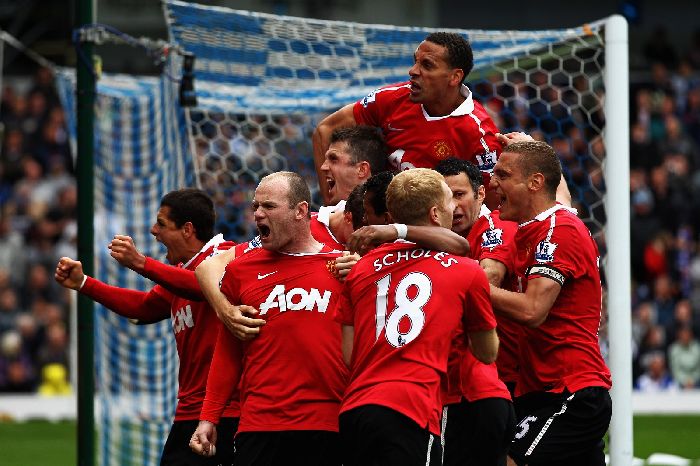Football in China: big business or a tale of flawed finances?
The arrival of Ivorian footballer Didier Drogba at Chinese Super League Club Shanghai Shenhua is a watershed moment in the history of the game in China. From a footballing point of view this is a real coup – attracting a world-class talent who still has a few years left in him is something that one could only dream about a few years ago. However, even more significant is what it says about the potential financial muscle of Chinese football, and where it might lead in the next few years.
What can be said is where there was once very little money in Chinese football, there is now an abundance of riches, at least for some teams. Shanghai Shenhua has signed on Drogba and his former Chelsea teammate Nicolas Anelka, both of whom are reported to be earning in the region of $300,000 per week. Guangzhou Evergrande has also invested heavily in players such as Paraguay’s Lucas Barrios and Argentina’s Dario Conca — two of the highest paid footballers in the world – and hired legendary manager Marcelo Lippi to lead the charge.
But where has this money come from? For most of the wealthy, it is down to the business success that China has enjoyed in recent years. Zhu Jun, the owner of Shenhua, is the founder of a company holding the Chinese distribution rights to World of Warcraft, whilst Evergrande is a large real estate group.
At first glance then, it seems as if the troubles of corruption are a thing of the past, and the Chinese Super League can now go from strength to strength. But this new mentality to splurge is not necessarily a good thing for the league. Clubs such as Shanghai have revenues lower than teams in the second or third tier of English football, yet they are now paying these inflated wages to a number of foreign players. Without greater revenues coming in, such spendthrift behavior cannot continue for long.
Unsustainable Spending
Signing stars works in the short-term as a way to inspire young players and fans, but it is not a long-term solution for the Chinese game, particularly if it wants to develop a healthy, sustainable league that can help to nurture domestic talent.
Rowan Simons, Chairman of China ClubFootball, author of the book Bamboo Goalposts and an expert on the Chinese sports industry, concurs. “Signing big name foreign stars is the wrong approach for the development of football in China. Star salaries are several times the entire revenue of their club and this is fast making the CSL one of the least sustainable leagues in the world,” he says.
He believes that the current spending can only last for a short time, and that rather than sensible team- building, the clubs will rely on image rights and other non-footballing revenues. “It further reduces the opportunities for young Chinese players.”
European football has seen its fair share of business problems in recent years, most recently with the financial issues at beleaguered Scottish club Rangers FC. Adam Owen, Head of Sports Science & Fitness at Rangers, says that China’s clubs can learn from the financial problems that have grown in recent years in European football.
“Big name players are great in order to allow continued exposure of the sport via media streams – but the key is ensuring the Chinese Football Association build on the back of these to assist the long-term development plans which must be put in place. Clubs need to become sustainable and ensure they remain financially stable,” says Owen.
Market Potential
Whilst Chinese football has a long way to go in terms of development of its own league, the potential of the Chinese market for clubs from outside China is something that is growing in importance. As clubs in Europe and beyond look for new ways to grow their revenues, the Chinese market, and Asian market in general, is a prime target for growth.
Three of the top five richest clubs in the world – Arsenal, Manchester United and Bayern Munich – along with Manchester City all played games in China this July in a bid to break into this seemingly lucrative fan market.
“Anyone who saw our last visit – to Hangzhou in 2009 – will know the enormous popularity the club enjoys in China; thousands of cheering fans lining the streets and waiting patiently outside the hotel for a glimpse of the players. That passion and enthusiasm cannot be ignored,” said Manchester United Chief Executive David Gill in a recent interview with China-Britain Business FOCUS magazine.
The sheer size of the Chinese market and the popularity that leagues such as the English Premier League and German Bundesliga enjoy means that clubs feel they can benefit from greater interaction with fans here.
“The size of the population is clearly a factor and I have no doubt that the club’s marketing strategy is geared towards winning as many fans in the Far East as possible,” says Andrew Mangan, founder of popular Arsenal blog and news site Arseblog, regarding Arsenal’s tour to China to play Manchester City in Beijing this July.
The market potential is clearly not lost on Mangan, given he has recently developed a Chinese language version of the Arsenal blog. Regarding his decision he says, “The Chinese focus was because of the size of the audience and that nobody was really doing a dedicated Arsenal news site in Chinese. It has been reasonably challenging but we’re happy with how it’s going and hope the traffic will increase over the coming months.”
Despite the potential of the market however, actually generating increased revenues through such tours can be difficult, particularly in terms of merchandising. “Merchandising has not broken through a major threshold as it has in other markets like the US. Mostly because you can still find knock-off jersey of any major club in Europe. TV audiences are what most clubs are after,” says Trevor Lamb, contributor for Wild East Football, a website that offers news, views and analysis of Chinese football in English, and International Coordinator for Chinese grassroots club Sinobal FC.
Rowan Simons, however, feels that there isn’t a great deal of money to be made from TV deals either. “Foreign leagues can make money from China rights, but this is limited to just a few properties. The CSL makes nothing from its TV rights and is unlikely to do so.”
Even in the short-term of hosting a match in China, revenues are hard to come by. China still has a lot to do in order to call itself a dedicated football nation, and therefore any potential gains should be seen as a long-term project. Manchester United, for example, has been touring Asia since the 1970s in order to try and develop this market.
Still, there does appear to be a desire in China to get more involved in football globally, particularly from a financial point of view. For example, it has been announced that Chinese investors will pay $67 million for a 15% stake in Inter Milan, becoming the second-biggest shareholder of the Italian Serie A club. The deal involves a new stadium to be built by China Railway Construction Corp, the main partner in the first such investment from mainland China in a major foreign sports team.
Changes Required
Perhaps the only way that large European clubs will see real gains from the Chinese market is by getting involved in the development of the Chinese game in order to raise awareness, improve fan interaction and improve the quality of the domestic game in China. As of right now, the domestic league is still struggling, despite the aforementioned high-profile signings.
“Match day revenues are tiny and there are many reports of tickets being given out for free. Limited merchandise and lack of stadium ownership also impact hospitality and advertising revenues. Most clubs are sponsored by the owner. In short, Chinese football clubs have very few revenue streams,” says Simons.
Improvements can only be made through investment in grassroots football in China, which is something both ClubFootball and Sinobal FC have been significantly involved in. However, the investment and patience needed is great. “It took us 10 years to perfect the ClubFootball model and few are prepared to make that investment. To my knowledge, we are the only registered football club in mainland China that, without any government or private subsidy, makes a profit from providing ‘play football’ products and services to its consumer members,” says Simons.
With most major football clubs still short-term planners, it is unlikely that such investments in China’s game will be made by Europe’s top clubs. “Many international people and clubs are interested in Chinese football now. However, most just see a cash cow and have little interest in getting involved with long-term projects and really developing the game,” says Trevor Lamb.
And without such investment, the one factor that would really help to realize the potential of the China market is not there – a domestic star player that Chinese fans can get behind.
“Currently, the player pool in China is skin and bone. The professional clubs are often lacking depth beyond a few solid players and even if these solid players were tempted to go abroad, they would not be able to have the impact of guy like Yao Ming in the NBA at the top level of football,” says Lamb.
And without the footballing equivalent of Yao Ming, the football market in China will not reach its potential, and the peaks and troughs it has experienced over the last few decades will continue.




















